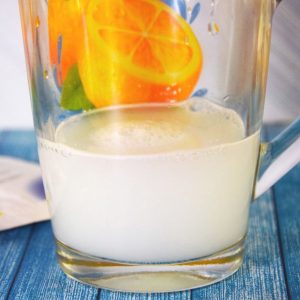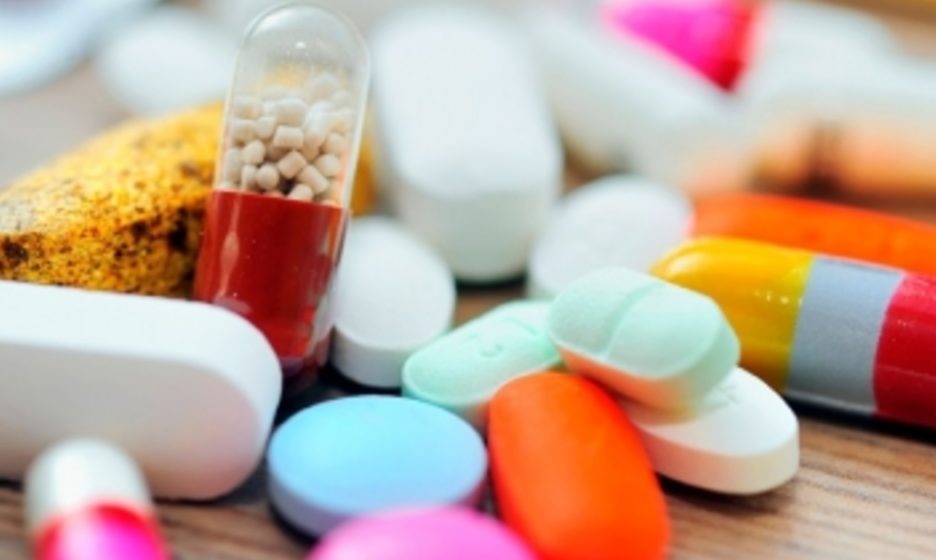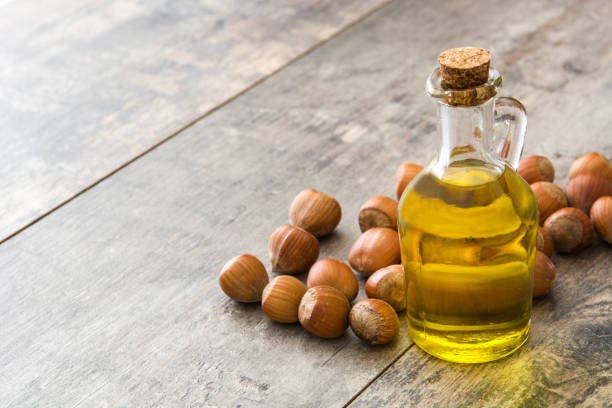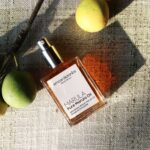In the West, treatment according to international protocols is considered mandatory for physicians in almost all specialties. Such guidelines are developed on the basis of many years of experience, confirmed by numerous studies. This approach allows us to “sift out” ineffective medications, to refuse those that carry more potential danger than benefit.
In Ukraine, Russia, and the CIS countries, the approach is somewhat different, although many protocols have already been implemented in the medical system. Still, doctors continue to use quite a few drugs that are banned in the United States and Europe. What are these drugs, and what are the reasons for their prohibition in the West – let’s understand in this article.
Analgin
The most popular drug among Ukrainian, Russian and patients from neighboring countries. It is taken for headaches, toothaches, when the stomach aches. There are also those who use it to bring down a high fever.
Just recently analginum turned 100 years old, and half of that time it has been banned for use in the United States and countries in Europe. In 1970, the WHO recommended that everyone give it up, arguing several facts at once:
- The mortality rate after taking analgin is 7%, which is quite high;
- The pills are not allowed for children under 12 years of age, pregnant and lactating women;
- The sodium methamisole-based drug has many side effects, from unpleasant tinnitus to a sudden spike in temperature with the formation of painful blisters on the skin;
- There is a high possibility of agranulocytosis – a decrease in the number of granulocytes and white blood cells in the blood. As a result, the immune system is severely compromised, and the person becomes vulnerable to various bacterial and viral infections and fungi. Such patients have to be kept in sterile conditions in order to protect them from danger. Fatal outcome is possible in 80% of cases. And if the patient survives, it is difficult to restore his health completely.
Despite this danger, analgin is still freely available in Ukrainian, Russian, and Belarusian pharmacies, as well as in CIS countries.
Phenobarbital
Corvalol, Barboval, Valokordin – such drops, and now also tablets can be found in the medicine cabinet of almost any elderly person. But they are popular not only among pensioners, many young people try to cope with tachycardia, anxiety, heart pain, insomnia by taking these drugs.
Unlike in the former Soviet Union, the United States and Europe long ago banned all phenobarbital-based medications. And despite the fact that Valokordin is a product of a German pharmaceutical company, it is manufactured exclusively for import. Germans themselves do not use it now and do not sell it to most European countries.
The main reason for the prohibition of drugs with this component is that phenobarbital is a representative of the group of barbiturates, i.e. psychotropic substances. Its constant and prolonged use is addictive – narcotic dependence. And this effect that a person feels after taking Corvalol or Barboval can be compared with euphoria. In other words – all unpleasant symptoms recede while phenobarbital is present in the body. As soon as it is eliminated, anxiety, insomnia, heart pain return.
Barbiturate addiction is a serious enough condition, so as long as these drugs are not banned in all countries, you should be careful with them. Better yet, avoid using them altogether, because all the symptoms that the phenobarbital-based remedy supposedly “treats” can be overcome with other, safer medications .
Levomycetin
Levomycetin tablets are a popular remedy that patients use on their own to treat diarrhea in children and adults. They are inexpensive, in addition, the drug can be purchased in any pharmacy without a prescription. But using levomycetin, no one thinks about the consequences of self-treatment. Such an antimicrobial agent is not as safe as it may seem. Because of the large number of side effects that are dangerous to human health, the release of levomycetin in dosage forms for oral administration is prohibited in the United States. It can only be found in eye drops or topical ointments.
And there is a reason to ban levomycetin tablets. This antibiotic, whose active ingredient is a member of the amphenicol group, chloramphenicol, is dangerous with its side symptoms:
- Negative effects on the CNS – confusion, depression, hearing and visual disturbances;
- Depression of the hematopoietic system. After levomycetin administration severe anemia, leukopenia, thrombocytopenia, granulocytopenia may occur;
- irritation of the oral mucosa (glossitis), disorders of the digestive system.
Given that it is not banned in Russia, Ukraine and CIS countries, patients should take it only in extreme cases when there is no alternative treatment.
Cerebrolysin, phenibut, sermion, and other nootropics
Nootropic drugs are a group of medications that have an effect on the central nervous system. They are used to improve memory, concentration, and increase mental activity. Also indications for the use of nootropics are considered neurosis, asthenia, withdrawal syndrome in alcoholism, Meniere’s disease. And children are prescribed such drugs for bedwetting, stuttering, nervous tics. However, not all over the world a similar attitude to nootropics. In Australia, they are completely banned for use, with the exception of a few active ingredients that are included in dietary supplements. In the United States, the situation with nootropics is similar, although some drugs are still used in official medicine. For example, they are prescribed for attention deficit hyperactivity disorder in children, and Alzheimer’s disease. But without a prescription it is impossible to buy such drugs – everything is strictly controlled.
It is illegal in the U.S. to make and sell drugs that include:
- DMAA;
- Phenibut;
- Octodrine;
- Vinpocetine;
- Preparations of the racetam group (piracetam, phenylpiracetam, oxiracetam, and others).
The reason for banning all these drugs is that they can be addictive, and the side effects of use are anxiety, nervousness, and sleep disturbances. At the same time, phenibut-based medications are readily available in any pharmacy in the former Soviet Union.
Nimesulide

When a patient comes to a Ukrainian or Russian pharmacy with a toothache or after visiting the dentist, he is often offered sachets of Nimesil. This drug perfectly copes with painful sensations and has an anti-inflammatory effect. It would seem to be a great remedy, but in many countries nimesulide preparations are banned. They can not be used in the United States, Finland, Ireland, Belgium, Spain. The fact is that this remedy is effective, but not at all harmless. There are known cases that after using the remedy for several days in a row, patients needed a liver transplant. Nimesulide is hepatotoxic, although the mechanism of this effect is not fully understood.
Until it is banned everywhere, it is worth being extra cautious, and under no circumstances should it be used by children.
No-shpa, drotaverine.
The best known antispasmodic under the trade name No-Spa is available only in Eastern Europe and parts of Asia. In the rest of the world, the drug is banned, especially among pregnant women. Germany, the United States, and the United Kingdom have recognized drotaverine-based medications as dangerous because there are studies claiming that taking No-Spa by pregnant women can cause delayed speech in children.
In addition, the active ingredient drotaverine has a vasodilator effect, so it is dangerous for hypotensive people, because it can reduce blood pressure to critical levels. And most importantly, an overdose can cause serious poisoning, and in some cases death. For example, in 2016, after taking No-Shpa the Russian chess player Ivan Bukavshin died after exceeding the maximum dose four times.
Ephedrine and pseudoephedrine
Thailand has listed ephedrine and pseudoephedrine as banned substances. They are classified as drugs with psychotropic effects, although they are included in several cough syrups. In Russia, Ukraine and several other countries in Eastern Europe, preparations based on them can be purchased by prescription in pharmacies. The most famous is Broncholitin, which is prescribed for both children and adults for coughs.
This information is particularly relevant for tourists, because the possession and use of ephedrine and pseudoephedrine is a criminal liability for up to 5 years. Going on a trip, it is better to stock up on other cough medicine.
Mustard pills

In the West and in the United States, mustards were abandoned years ago. According to some reports, the main reason for this is the risk of melanoma. This theory has not been fully confirmed, but neither American nor European doctors recommend the use of mustard therapy.
In Russia, Ukraine, CIS countries they can be easily found in any pharmacy and purchased without a prescription. Mustard pills are used to treat colds, flu, back pain, and sometimes to lower blood pressure. It is believed that they warm and increase blood circulation, thereby relieving inflammation and activating the immune system. But in fact there is no benefit from mustard pills.
They warm only in the place where they are put, and this effect is provided by mixing water with sinigrin, which is in the mustard seeds. The result is allyl isothiocyanate, which causes a sensation of heat on the skin. But if you keep mustard on the skin for a long time, it is possible to burn.
Evaluating the effectiveness of such a method of treatment of cold or flu, it is possible to assert: it can work only as a placebo, because mustard glands do not warm up so deeply as to really treat. And in case of bronchitis and pneumonia they are contraindicated at all.
Aspirin
“American aspirin” has been a buzzword since the late 1990s and early 2000s. Many people wanted to get their hands on it, because it was believed that such a drug was used in the United States for everything, and it was of excellent quality. Today aspirin is not banned in America, but under very strict control. It is prescribed mostly by cardiologists for the prevention of blood clots, after heart surgery. But there are also countries where aspirin is banned: Bangladesh, Turkey and India. This is because the drug has many serious side effects: the development of ulcer disease and kidney disease, liver disease, heart disorder, risk of bleeding.
In Russia, Ukraine, and Belarus, aspirin is taken by many people, and often to reduce fever. It is sold in pharmacies without a prescription.
Not banned, but not used drugs either
There are several other remedies that are not actually banned, but also not used in the West. One such drug is an alcohol solution of brilliant green, popularly called verdigris. Neither in the U.S. nor in Europe, this remedy does not belong to official medicine. The reason is simple: the mechanism of action of verdure has not yet been studied, and its effectiveness has not been confirmed. Given that the medicine of Western countries is based on evidence, such drugs simply do not stand a chance.
A similar situation has occurred with Validol. American and European doctors do not recommend it to patients. The reason is similar – there is no evidence base for Validol’s effectiveness.
The information on what is forbidden and what is allowed of medications in different countries is not just for comparison. It will be relevant to travelers who take their first aid kit with them. The list of prohibited medicines is definitely worth considering, so as not to have problems when crossing borders.
Sources
- Student Science Forum – 2015. – Why is analginum banned in many countries of the world?
- Minsk Regional Clinical Center for Psychiatry-Narcology. – About “Corvalol.”
- MpsDoc.com. – Levomycetin tablets.
- Fishki.net. – Why nimesulide is banned in the U.S.
- Physomed. – Still think No-shpa is harmless? Scary facts about antispasmodics
- Altmedica Clinic. – Thai authorities check travelers’ first aid kits
Read also:
- How do I check my gastrointestinal function?Stomach pain, constipation or diarrhea, bloating, belching, heartburn? These are all symptoms of problems in the gastrointestinal tract. It starts with the mouth and esophagus and ends with the intestines and rectum.
- What are the benefits of hazelnut oil for the skin?Hazelnut oil is rich in vitamins and essential fatty acids that nourish the skin. Here are a few reasons why you should add this oil to your skin care routine.
- Immune-boosting aromatic oilsThere are many products and treatments that can help your body to build a natural resistance to the harsh winter months, and aromatherapy is one of them. There are many studies supporting the healing power of aromatherapy and it is good for both mental and physical health. Aromatic essential oils also have many health benefits… Read more: Immune-boosting aromatic oils
- Marula Oil Benefits, Uses, and PrecautionsMarula Oil is an exotic oil that comes from the African Marula tree. It’s a good ingredient for skin, hair, and nails. Learn more about the benefits and precautions of Marula Oil with our guide.
- Goal setting for students, children and young peopleRemember when you learned how to set goals? If you have trouble answering this question, you are not alone! Most of us don’t spend much time thinking about how we set our goals. In fact, many of us don’t even think of goal setting as a skill; rather, it’s something we do without much thought.… Read more: Goal setting for students, children and young people
The articles on this site are for information purposes only. The site administrators are not responsible for attempting to apply any recipe, advice or diet, nor do they guarantee that the information provided will help or harm you personally. Be cautious and always consult a doctor or nutritionist!
*All products recommended are selected by our editorial team. Some of our articles include affiliate links. If you buy something through one of these links, you help us earn a small commission from the seller and thus support the writing of useful and quality articles.










